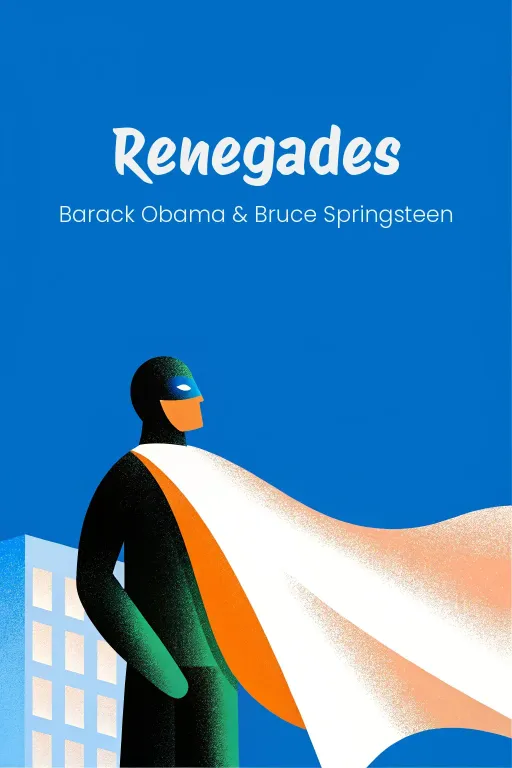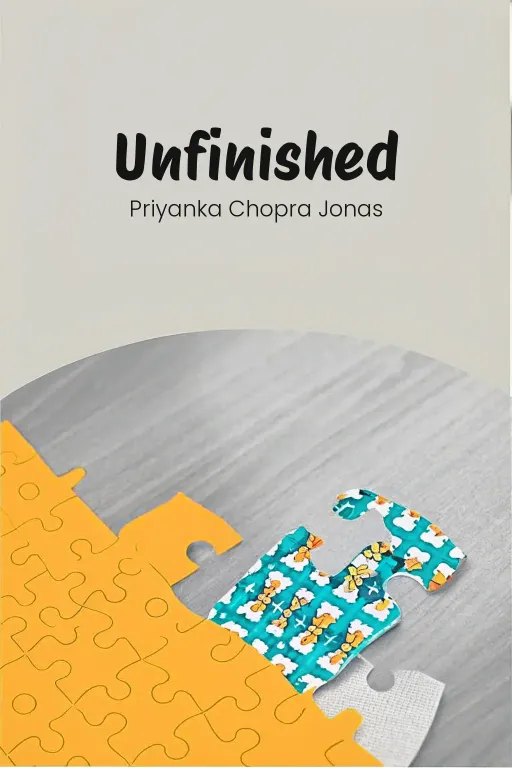
America's Story: Can Music & Truth Unite Us?
Podcast by Beta You with Alex and Michelle
Born in the USA
America's Story: Can Music & Truth Unite Us?
Part 1
Alex: Hey everyone, welcome! Today, we're diving into a conversation that's “really” heartfelt, thought-provoking, and very American. It's about the stories we tell ourselves as a nation – who we were, who we are now, and who we're aiming to become. Michelle: And who better to take us on this messy, complicated, but fascinating journey than Barack Obama and Bruce Springsteen? One steered the ship of state, the other, well, he gave the country its soundtrack. Together, in their book Renegades: Born in the USA, they're “really” pulling back the curtain on the whole American experience. Spoiler alert: it’s not all just about the fireworks and freedom, right? Alex: Exactly, far from it. The book is actually a “really” deep, intimate dialogue. They're wrestling with these huge questions – race, identity, freedom, and of course, music's incredible power to connect us all. At its core, it's about the shared struggles and aspirations that, you know, make up this country's DNA. Obama and Springsteen, they use their own personal stories – growing up Black in America, growing up working-class in New Jersey – and they connect them to the bigger cultural and political battles of our time. Michelle: And let's not forget the music, okay? From protest anthems to these soulful ballads, Springsteen's artistry, and Obama's reflections on music's role in shaping movements, “really” gives this book a rhythm, totally unique, its own. But it's not just about nostalgia. It's actually about how we pick up the pieces of a fractured nation and try to imagine something better. Alex: Absolutely. So, today, we're breaking it down into three key areas. First, the shared struggles that have actually shaped the American journey– tracing the line from historical injustices to the challenges, the issues we're facing today. Second, the transformative power of music, which the book sees not just as a creative thing, but also as a unifying force that crosses lines of race, class, and geography. And finally, we’ll explore their vision for unity and progress, and maybe how we can close the gap between who we are now and who we're hoping to become. Michelle: Think of it as a three-act play, right? Struggle, connection, and then hope. We're gonna unpack each one, piece by piece. Let's see what the Renegades can teach us about, you know, understanding America, its contradictions, and how to hold on to hope so we can make it better.
American Identity and Shared Struggles
Part 2
Alex: Okay, so picking up where we left off, let's dive into the first foundational theme: American identity and shared struggles. This is “really” key because it sets the stage for everything else, showing us how our personal stories and the story of America are all tangled up together. Michelle: Exactly. What better way to explore that than by looking at Obama and Springsteen? I mean, their lives started in such different places, but they both wrestled with this feeling of, "Where do I even fit into this whole American thing?" Alex: Precisely, Michelle. Take Obama, for instance. Growing up in Hawaii – paradise, right? – but also a place of surprising isolation and, you know, its own kind of diversity. Being mixed-race back in the '60s, he felt, well, "in-between." He didn't feel fully accepted by either the Black or white communities. And as a teenager grappling with identity, he's in a society obsessed with clear-cut racial categories. Michelle: It's funny, because Hawaii seems like this melting pot ideal. But even there, Obama bumped up against the limits of belonging. And isn't that America in a nutshell? We pride ourselves on being a melting pot, but truly blending all the flavors? Still a work in progress, wouldn't you say? Alex: Absolutely. Now, contrast that with Bruce Springsteen. He grew up in Freehold, New Jersey, a blue-collar town. The struggles were totally different, but just as intense. His experience was shaped by economic divides as industries crumbled, taking away the very foundation those working-class families relied on. Michelle: That's where Springsteen's lyrics hit you, right? He paints Freehold as a town where people were barely hanging on even before all the factories shut down. What struck me reading Renegades is that he saw more than just financial poverty. It was poverty of opportunity, of connection. Those barriers that keep working-class people stuck no matter how hard they hustle. Alex: And, for him, those barriers intersect with race as well. He saw this unspoken, but very real, segregation growing up. He brings up this haunting image: even in supposedly integrated playgrounds, everyone knew which kids could play with whom. Those unspoken rules reflected larger social dynamics, how different groups were divided into invisible hierarchies. Michelle: So, at the heart of it, both Obama and Springsteen are showing us this "outsider" experience. Obama caught between racial identities, Springsteen grinding through the economic alienation of working-class America. It seems to me that this outsider perspective gave them both a heightened awareness of different kinds of struggles, whether from systemic racism, economic inequality, or just broken communities. Alex: Exactly, and it's this personal perspective, this lived experience, that fuels their deeper thinking about America as a whole. Obama, for example, connects his struggle with acceptance to the bigger societal problems around race. He doesn't shy away from things like redlining, Jim Crow laws, and how those policies still affect wealth gaps today. These aren't just abstract concepts for him, he lived the repercussions of those systems firsthand. Michelle: And Springsteen's angle “really” complements that by focusing on the fading promise of the working-class dream. Freehold becomes a symbol of what happens when the "land of opportunity" runs out of ways to actually support the people who built it. You can hear it in his music. "The River," for example—it's not just a sad love song, it's a snapshot of the American Dream hitting its limits. Alex: That's such a great point. In both their cases, individual stories reflect collective experiences. Obama sees America's racial tensions through his own mixed-race identity, while Springsteen channels working-class frustration through the economic decay he saw up close. What's amazing is that their stories don't just illustrate these struggles, they humanize them in a way that statistics never could. Michelle: Right, so it's storytelling as a bridge. It struck me how these ideas of "outsider" versus "belonging" are less about personal identity and more about how systems box people out. How they tell people, "This is your place, and it's not over there." Whether it's those unspoken rules of segregation or the economic dead ends trapping workers in Springsteen's America, both men are basically saying, "These aren't accidents." They're the result of policies, attitudes, and systems. Alex: Which brings us to an important point they make in Renegades: these struggles might feel profoundly personal, but they're actually quite universal. Feeling like an outsider? Struggling to find your place? That's not some unique experience, it's something many Americans have faced, shaped by race, class, or both. And that realization opens the door to empathy. Once you understand that other people are dealing with their own version of this, it becomes easier to see our shared humanity. Michelle: And isn't that the thread tying their whole conversation together? This idea that understanding American identity means understanding America's struggles, not as isolated events, but as pieces of the same, often broken picture. Alex: Exactly. Which is why this foundation of identity and shared struggle is so crucial for understanding the rest of their conversation. Whether they're talking about racial justice, economic inequality, or even just resilience, it all goes back to understanding these roots.
Music as a Unifier and Catalyst for Change
Part 3
Alex: So, naturally, all these struggles, both personal and collective, lead us to talking about music as a unifying force. Both Obama and Springsteen really see music as more than just something playing in the background. It’s like a language, you know? It breaks down all sorts of barriers and really carries people through tough times. This really builds on what we were just saying, showing how cultural tools like music can address these struggles and…give us some real hope. Michelle: Exactly! It’s like music becomes the great equalizer, piecing together all these fragmented stories. It doesn’t make the divisions disappear, but it definitely smooths them over, right? Springsteen’s live shows, as they describe in the book, are a perfect example. He talks about standing on stage and feeling this incredible connection as people from every walk of life come together through song. It’s more than just art—it’s a shared experience. Alex: Yes! He describes those moments on stage as, like, almost sacred. It’s not about the performer showing off; it’s about creating a space where the artist’s own vulnerabilities meet the audience’s openness. He’s faced with a crowd, a literal sea of people who might be total strangers, and yet, in that moment, they’re all united by one emotional journey. That’s music at its absolute best. Michelle: And isn’t there something beautifully ironic about that? An artist like Springsteen, who often writes about the things that divide us—economic hardship, racial tensions, societal barriers—uses his art to tear those very walls down, at least for one evening. It’s hard not to be amazed by that paradox. Alex: Absolutely. What really stands out is Springsteen’s belief that this connection actually builds empathy. He argues—and I agree—that music has the power to make people feel less…“other." When someone hears lyrics and melodies that reflect their own emotions that they couldn’t quite express, they’re reminded that they’re not alone. And that extends not just to the artist, but to the person next to them in the crowd. Michelle: It’s almost like music is a crash course in shared humanity, which ties into their discussion of broader cultural legacies. Obama, for instance, talks about how American music is fundamentally shaped by the contributions of African American communities—from Stevie Wonder to jazz, to the deeply political blues and hip-hop. These aren’t just musical styles; they’re living records of resilience and resistance. Alex: Exactly. Obama mentions Stevie Wonder’s Talking Book as his gateway into music that offered both personal feeling and social reflection. The idea that you can mix love songs with calls for equality and justice—that’s a really profound intersection, and it mirrors those layers of identity and struggle we were discussing earlier. Wonder wasn’t just making art; he built bridges between the personal and political. Michelle: And Springsteen agrees, but he emphasizes how much of this innovation came from marginalized communities who, despite everything stacked against them, turned music into tools for liberation. Billie Holiday’s Strange Fruit – that haunting song about racial violence – is one of the strongest possible examples. It’s music that forces you to confront injustice head-on; there is no casual listen with “Strange Fruit." Alex: And that’s the brilliance of it, isn’t it? Songs like that stopped people in their tracks, making the realities of structural injustice impossible to ignore. Springsteen sees this as exactly what music at its best can do—not just entertain but also educate, agitate, and inspire us. Whether it’s blues, jazz, or hip-hop, these genres gave voice to struggles that weren’t being heard anywhere else. Michelle: Right. Which brings us to activism. Obama shares how he used music even as a political leader. The White House music nights weren’t just celebrations of different genres. They were statements of inclusivity. "We’re all connected by our shared love of music," he says. That's a pretty powerful message. Alex: And then there’s the Charleston Amazing Grace moment. When words just weren't enough after the 2015 church shooting, Obama turned to song. It was this incredibly powerful example of how music can rise above even the most painful silences, offering both comfort and unity. It wasn’t just about him as president; it was about him as a human. Michelle: It’s solid proof that music doesn’t live in its own little world. It interacts with our emotions, our politics, our collective memory. Of course, there’s a darker side to the story too. Springsteen doesn’t shy away from talking about the exploitation and appropriation within the music industry—how African American artists have often been robbed of credit and profit for their groundbreaking work. Alex: Right, and he sees that as a warning. It’s a reminder that the fight for equality isn’t just within our political institutions; it has to extend to cultural things as well. Recognizing the origins of the music we celebrate is crucial to ensuring fairness and honoring the legacies of its creators. Michelle: So, music becomes this dual force—something uplifting and healing, but also a battleground where broader societal injustices still play out. But even with these challenges, both Obama and Springsteen are champions for its ability to bring people together and amplify the voices that need to be heard. Alex: Exactly, and that’s their ultimate point. Music, when used thoughtfully, goes beyond entertainment and becomes a catalyst for healing and change. It brings communities together, shines a light on injustices, and, maybe most importantly, reminds us that even from the darkest parts of our shared history, hope can emerge.
Vision for Collective Progress and Unity
Part 4
Alex: Following our discussion on music and stories, we're at the core of this conversation—collective progress and unity. The “really” compelling part is that it’s not just wishful thinking. Obama and Springsteen actually present a practical plan, connecting past struggles to actions we can take, both personally and as a society. Michelle: Right, Alex. This is about weaving together everything we've touched on: identity, storytelling, music, and activism, into a framework for moving forward. They emphasize the need for dialogue and community as essential for healing. Alex: Spot on. Michelle: But, Alex, here's the thing. "Dialogue" sounds like mission impossible in a country that feels more divided than ever. How do you even begin that conversation when people seem so dug into their positions? Alex: That's a great question, Michelle. Obama tackles this by stressing the importance of empathy and confronting our history, even the parts that are uncomfortable. He points out that "You cannot decide your future direction if you do not know where you stand.” We need to place the conversation in the context of our history. For instance, as uncomfortable as it is, we can’t ignore the historical inequality created by things like redlining. These aren’t just abstract things; they're real things with lasting effects. Michelle: Exactly. And Obama links these historical realities directly to policy. The point isn’t to remain stuck in the past, but to use this understanding to inform fair solutions now and going forward. What's striking is how direct he is about needing this reflection. It's like saying you can't treat a wound by pretending it isn't there. Alex: Totally. And that's where Springsteen’s contribution as a storyteller is so powerful. Through his music, he opens up a dialogue about these "wounds," offering stories that humanize struggles. Think about his songs, giving voice to working-class Americans who often feel invisible. His storytelling becomes both a critique and a bridge. Michelle: Exactly, and that's a key theme—acknowledging struggles not to just wallow in them, but to find common ground. Springsteen shows the power of art to spark the conversations that need to happen. But shifting gears a bit here to something more positive, they both see younger generations driving progress, right? Alex: Absolutely, and that gives a hopeful perspective. Obama highlights the momentum behind movements like Black Lives Matter, especially the 2020 protests after George Floyd’s murder. He was struck by the scale—millions of people from all walks of life—and the determination of these young activists. He talks about seeing signs of unity in the diversity of the protests. It wasn’t just one type of person, but a reflection of a more inclusive idea of what America could be. Michelle: And Springsteen echoes that, talking about how inspiring it is to see younger voices stepping up. He mentions feeling proud watching his son get involved in those protests. It’s a full circle type of moment, yeah? The activism of the '60s inspiring a new wave of leaders today. Alex: It’s also telling us that progress doesn't happen out of nowhere. These young activists are learning from the past—from civil rights leaders, anti-war activists, even protest music. And they’re adapting those lessons to fit today, using everything from social media to grassroots organizing to spread awareness. Michelle: You know, it’s fascinating how they frame this as a partnership between generations. They're not putting the whole burden on the youth, but they do recognize their energy. At the same time, they're calling on older generations to actively support and mentor them. It’s about working together. Alex: Exactly. Collective progress requires collective responsibility. And part of that is acknowledging the past flaws that got us here. Obama and Springsteen argue that while we’ve made incredible strides, we have to confront uncomfortable truths about figures like Washington or Jefferson. It’s not about erasing their contributions, but engaging with their legacies fully. Michelle: Right, and Springsteen takes it further by shedding light on overlooked narratives. Small-town America, for instance, often feels left out of the conversation. These communities, dealing with economic decline and cultural shifts, become fertile ground for division. So, his point is that acknowledging these struggles—without dismissing or romanticizing them—can lead to inclusive solutions. Alex: That’s why their vision of unity centers around shared responsibility. It’s not enough to just hope for a better future; communities need to rally behind shared goals. Obama points to moments like the legalization of same-sex marriage as proof that progress happens when different groups find common ground. Michelle: And Springsteen’s The Rising, written after 9/11, can't be missed here. It’s an anthem of resilience born of grief. Springsteen has said that music like that reminds people that they can endure and rebuild together, which is more important than solving the problem. Alex: That really captures their whole vision—realism mixed with optimism. Progress isn’t a straight line and unity isn’t easy. But by encouraging dialogue, empowering youth, acknowledging our history, and embracing shared narratives, they give us a plan for moving forward. It’s not just about imagining a better future, but working together to build it. Michelle: Exactly, and in that, they're challenging all of us—leaders, artists, citizens—to step up. It isn’t just their vision; it's an invitation to weave our voices into it.
Conclusion
Part 5
Alex: So, today we’ve really dug into some powerful themes from “Renegades: Born in the USA”, haven't we? American identity, how music brings us together, and this idea of unity built on shared struggles and, importantly, mutual responsibility. What Obama and Springsteen show us is that what happens to us individually is so connected to the bigger political picture. And you really can't shape the future without understanding where you've come from. Michelle: Exactly. They definitely don’t sugarcoat anything—whether it's talking about systemic racism, economic hardship, or how divided we are as a culture right now. But they balance that honesty with, you know, a sense that we can actually do something. Whether it’s through telling stories, making music, or just talking across generations, they prove that progress is going to be messy, but it's achievable if we actually try to understand each other and find some common ground. Alex: And maybe that's what we all need to take away from this: to really listen to each other, to face our challenges head-on, and to look for those common threads that connect us, even when we seem so different. I mean, real change starts when we bridge those gaps, not just in our political systems but also in how we understand the people around us. Michelle: Okay, so here’s the million-dollar question for our listeners: How does your story fit into this bigger picture? What can you do—big or small—to encourage more empathy, connection, or even just a little bit of hope where you live? Maybe it starts with just striking up a conversation, sharing a song, or simply asking a question you wouldn't normally ask. Alex: Totally. Because as Obama and Springsteen point out, progress isn't about being perfect, it’s about moving forward, one genuine moment at a time. Thanks for joining us on this conversation, and until next time, let’s keep pushing towards that better version of ourselves, together.









